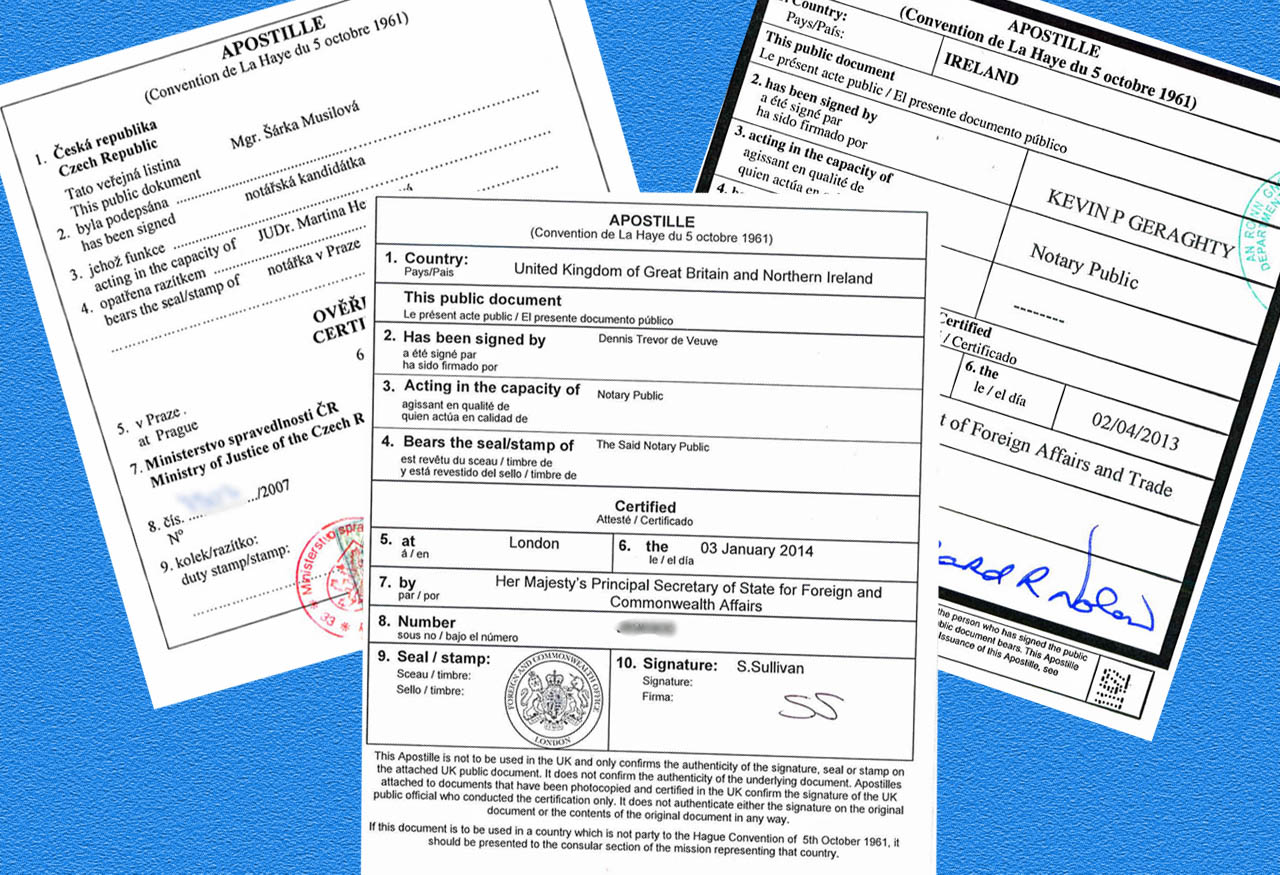 What is the Apostille of the Hague Convention?
What is the Apostille of the Hague Convention?
Traditionally, in order to use a public document abroad, it was required to authenticate (legalize) it previously, that is, that the competent authorities of the issuing country as well as the embassy or consulate of the country where it was to be used, did certify that the actual document had been issued by the relevant authority and had value and legal force in the country of origin. This legalization process involved a number of different authorities and it often turned out to be slow, complicated and expensive.
To avoid this, a large majority of countries signed or acceded later to the Hague Convention of 5th October 1961 Abolishing the Requirement of Legalisation for Foreign Public Documents, better known as The Hague Conference or the Apostille Convention.
Basically the aim of the Convention was to create a standard and straightforward legalization procedure, which eventually summed up in the obligation of annexing a certificate of authenticity known as Apostille to the document. This certificate is recognized and accepted by all signatories and it grants international validity to it.
The Apostille does not certify the content of the document but its origin, that is, the authenticity of the signature and stamp of the authority, as well as its capacity to issue it within the legal system of such country.
To which documents must the Apostille be attached?
Article 1 of the Convention specifies that it will apply to public documents which have been executed in the territory of a contracting state and which have to be produced in the territory of another contracting state. Therefore the Apostille is only required in public documents that will be used abroad.
What are considered public documents under the Convention?
- Documents emanating from an authority or official of the State
- Administrative documents
- Notarial documents
- Official certifications on private documents.
In which countries does the Apostille Convention apply?
The Apostille Convention applies only if both the country of origin of the document and the one in which it will be used are signatory parts.
There are currently 106 countries that are incorporated into the Convention, either because they are members of the Hague Conference or because they have adhered to the Apostille Convention. The list of them as well as any restrictions arising from objections of some members to the accession of others, can be found on the official website of the Convention (www.hcch.net).
What information does the apostille include?
The Apostille must contain the following information:
Country of issuance, identification and authority and stamp/seal of the document signer, legalization date and identification of the authority issuing the legalization with their seal/stamp and signature and registration number of the referred apostille.
Where do I get an apostille?
Each country will designate that authority (one or more) empowered to issue the Apostille. Typically and depending on each country it may be a High Court, the Foreign Affairs Department of the Justice Department of the Government, the dean of the Public Notaries, etc. In the official website of the Convention all competent authorities in each and every country are listed.
In Spain Apostilles are issued by Regional High Courts of Justice, the managers of the Territorial Offices of the Ministry of Justice as well as the dean of the Notaries in each city, depending on the type of document to be apostilled.
In the Czech Republic Apostilles are issued by the Offices of the ministries of Justice and Foreign Affairs (http://portal.justice.cz/Justice2/MS/ms.aspx?j=33&o=23&k=5096&d=320723). In the United Kingdom it is the Foreign Office Legalization department (https://www.gov.uk/get-document-legalised) and in the Republic of Ireland, the Consular Section of the Department of Foreign Affairs (https://www.dfa.ie/travel/our-services/authenticating-documents).
How long does it take to be issued and how much does an Apostille cost?
Apostilles are usually issued on the same day they are requested (if requested in person at the issuing office) and the price varies by country and the type of document to be apostilled, although they rarely cost over 50 €.
Luis M. Vicente Burgos
VICENTE & OTAOLAURRUCHI ABOGADOS






